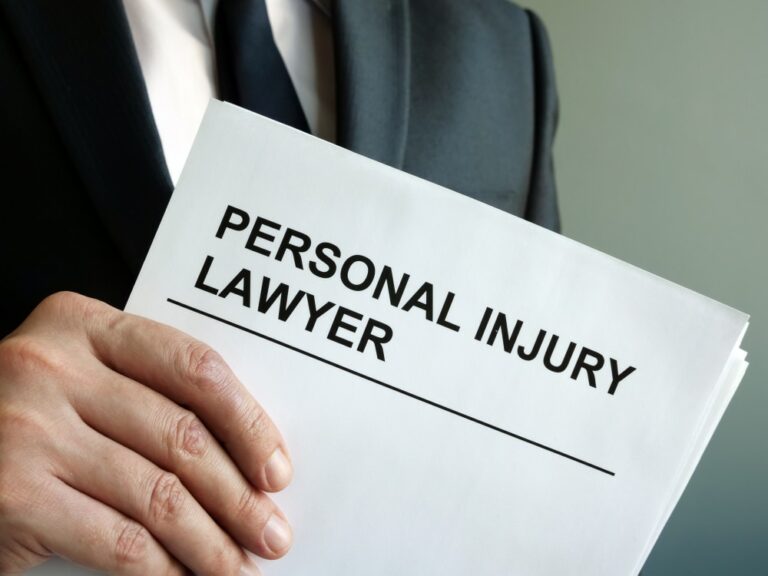The Role of Medical Records in Personal Injury Cases: Why They Matter

When pursuing a personal injury claim in Maryland, one of the most critical pieces of evidence you’ll rely on is your medical records. These documents provide a detailed account of your injuries, treatments, and the impact on your life. Whether you’ve been injured in a car accident, a slip-and-fall, or another incident caused by someone else’s negligence, medical records are indispensable in proving your case and securing the compensation you deserve.
Why Medical Records Are Crucial in Personal Injury Cases
Medical records are the foundation of any personal injury case. They serve multiple purposes:
Documenting the Extent of Injuries
Medical records provide a clear and objective account of the injuries you sustained. From X-rays showing broken bones to physician’s notes describing the severity of whiplash, these documents offer proof that your injuries are real and were caused by the accident in question.
For example, suppose you’re rear-ended in a car accident and suffer a herniated disc. Your MRI results, along with your doctor’s notes, will establish the injury’s existence and connect it to the collision.
Establishing a Timeline
Accurate records help establish when your injuries occurred and the progression of your recovery. This is particularly important in Maryland, where the statute of limitations for personal injury cases is three years. Without medical records showing timely treatment, insurance companies or opposing counsel may argue that your injuries were unrelated to the incident or that you delayed seeking care.
Proving Causation
To win a personal injury case, you must demonstrate that the defendant’s negligence directly caused your injuries. Medical records play a pivotal role in linking the incident to your condition. For instance, emergency room records showing that you sought treatment immediately after an accident can establish a clear connection between the event and your injuries.
Demonstrating the Impact on Your Life
Beyond proving the existence of injuries, medical records illustrate how those injuries affect your daily life. This includes limitations in mobility, chronic pain, or the inability to work. Such documentation is essential for recovering damages for pain and suffering, lost wages, and diminished quality of life.
Key Components of Medical Records in Personal Injury Claims
Not all medical records are created equal. The following components are particularly important:
Initial Medical Evaluation
The first medical report following the incident is often the most critical. It provides baseline information about your injuries, symptoms, and initial treatment plan. For example, if you visit a hospital in Annapolis immediately after an accident, the records will note your complaints of pain, visible injuries, and diagnostic tests performed.
Treatment Records
Ongoing treatment records show the progression of your recovery and any complications. This includes physical therapy notes, follow-up appointments, and prescribed medications. For instance, if your rehabilitation for a knee injury spans six months, these records prove the extent and duration of your recovery process.
Specialist Consultations
If your injuries require specialist care, such as consultations with an orthopedic surgeon or neurologist, these records can bolster your claim. A specialist’s opinion often carries significant weight in establishing the severity of your injuries.
Diagnostic Test Results
Test results like X-rays, MRIs, or CT scans provide concrete evidence of physical damage. For example, a radiologist’s report identifying a fractured wrist can refute any claims that your injury was minor or pre-existing.
Medical Bills and Expenses
Beyond documenting your injuries, itemized medical bills demonstrate the financial burden caused by the accident. These records are vital for calculating economic damages in your claim.
Common Challenges with Medical Records
While medical records are powerful evidence, there are potential challenges to be aware of:
Incomplete Records
Incomplete or missing records can weaken your case. For example, if you skip follow-up appointments, the opposing side may argue that your injuries were not as severe as claimed. Always ensure that your medical records are comprehensive and up to date.
Pre-Existing Conditions
Insurance companies often try to attribute your injuries to pre-existing conditions. Clear and detailed medical records can help differentiate between prior health issues and new injuries caused by the accident. For instance, if you have a history of back pain but an MRI shows new damage after a fall, your records can clarify the distinction.
Doctor’s Notes
Sometimes, medical notes may be vague or incomplete. For example, a physician’s record that simply states “patient reports pain” without elaborating on severity or limitations may not adequately support your claim. Discussing your condition in detail with your doctor can help ensure accurate documentation.
How to Strengthen Your Case with Medical Records
Seek Immediate Medical Attention
Delaying medical care can hurt your claim. Insurance companies may argue that your injuries were not serious or were unrelated to the accident. Even if you don’t think you’re seriously injured, a thorough medical evaluation can identify hidden issues, such as internal injuries or soft tissue damage.
Be Honest and Thorough
When describing your symptoms, be honest and detailed. Don’t downplay your pain or omit details about how the injuries affect your daily life. For example, if you struggle to climb stairs due to a knee injury, ensure this is noted in your records.
Follow Your Treatment Plan
Consistently attending medical appointments and adhering to your doctor’s advice demonstrates that you’re taking your recovery seriously. Missing appointments or discontinuing treatment prematurely can undermine your claim.
Request Copies of Your Records
Regularly review your medical records to ensure they accurately reflect your injuries and treatment. If you notice any errors, such as incorrect dates or missing information, work with your healthcare provider to correct them.
Examples of Medical Records’ Impact on Maryland Cases
Delayed Treatment Undermines a Claim
A Maryland resident injured in a slip-and-fall waited several weeks before seeking medical care. The insurance company argued that the injuries were unrelated to the incident, and without immediate medical records, the claim was significantly weakened.
Comprehensive Records Lead to Full Compensation
In another case, a car accident victim in Towson sought treatment immediately and followed their doctor’s recommendations for physical therapy. Detailed medical records, including X-rays and therapy notes, demonstrated the severity of the injuries, resulting in a favorable settlement.
The Role of Legal Representation
Navigating the complexities of medical records and personal injury claims can be challenging. An experienced personal injury attorney can:
- Gather and Analyze Records: Car accident attorney knows which records are essential and how to present them effectively.
- Work with Medical Experts: Legal teams often collaborate with medical professionals to interpret records and provide expert testimony.
- Challenge Disputes: If the defense questions the validity of your injuries, an attorney can counter these claims with solid evidence.
Medical records are a cornerstone of personal injury cases in Maryland. They provide the evidence needed to document injuries, prove causation, and recover damages. Acting promptly, maintaining thorough records, and working with an experienced attorney can significantly strengthen your claim and improve your chances of obtaining fair compensation.
If you’ve been injured due to someone else’s negligence, contact the Law Offices of Nicholas Parr. We’ll guide you through the process, ensure your medical records are in order, and fight for the justice you deserve. Schedule a free consultation today—we don’t get paid unless you win.








